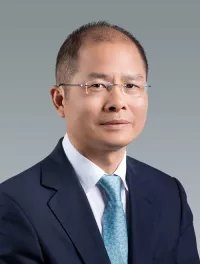It’s been almost three years since the Covid 19 pandemic hit the world, and many in the wireless industry recall that Mobile World Congress 2020 in Barcelona was the first major event to be canceled.
Fast forward to 2023, and the GSMA, which hosts MWC Barcelona and which has been put through the ringer the last three years, is looking forward to a robust event this year, from February 27 to March 2.
But the specter of Covid is still hanging around. After severe lockdowns in China for the past three years, the country has finally relaxed its quarantine mandates and is even allowing its citizens to travel abroad. Unfortunately, Covid is sweeping through the Chinese population now that people are interacting with each other. Many countries have quickly set up requirements for Chinese travelers to take a Covid test before entry.
Meanwhile, a spokesperson for Huawei said the Chinese company is planning a huge presence at MWC Barcelona this year. It plans to occupy the entire Hall 1 of the Fira Gran Via Barcelona, reminiscent of its presence in pre-Covid days. “This will be Huawei’s largest year” at the event, said the spokesperson.
In response to an inquiry from Fierce Wireless, the GSMA said it has developed a “Committed Community” plan in ongoing partnership with health experts and government officials to ensure a safe environment at MWC events. “Planning for MWC23 Barcelona remains dynamic given the ever-changing global circumstances,” stated the GSMA. “We are continuously responding to the latest information available from various officials and adapt plans accordingly.”
For its part, not only has Huawei had to deal with Covid 19 challenges in China, but of course, it’s struggled the last several years due to U.S. sanctions on its products, initiated during the Trump presidency.
Huawei’s year-end message
On December 30, Huawei Rotating Chairman Eric Xu delivered an optimistic New Year’s message, saying the company had finally turned the corner from the crisis mode it has been enduring.

“In 2022, we successfully pulled ourselves out of crisis mode,” said Xu. “U.S. restrictions are now our new normal, and we're back to business as usual. We expect to round off the year with a total revenue of 636.9 billion yuan [$92.15 billion], which is in line with forecast.”
He reported that Huawei’s ICT infrastructure business has maintained steady growth, and the decline in its device business has abated.
Huawei’s smartphone business was especially slammed by U.S. sanctions beginning in 2019 when the U.S. Department of Commerce placed Huawei and 70 of its affiliates on the Bureau of Industry and Security’s “entity list,” effectively banning the company from buying components from U.S. companies without government approval. One of the most immediate effects of the entity list was that Huawei’s smartphones no longer had access to Google’s Android operating system.
Xu said the company has achieved “rapid growth” in its Huawei Cloud division, and it’s also making great strides in its intelligent automotive components business.
He aims for Huawei Cloud to become the foundation of digital transformation for both Huawei itself and vertical industries.
While Huawei has been shut out of many Western countries due to concerns that its telecom equipment could be used for spying by the Chinese government, Huawei is still growing in emerging areas such as African countries.
In his New Year’s address, Xu said, “Cultivating local teams is crucial to our long-term survival and development in local markets outside of China, so we need to actively build out and manage our local workforce.”